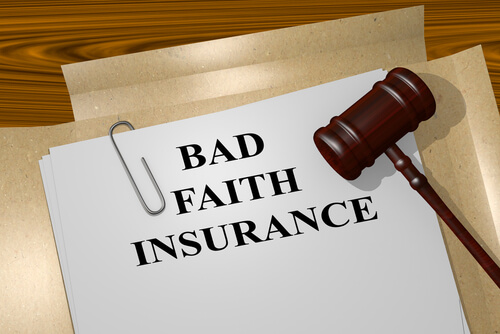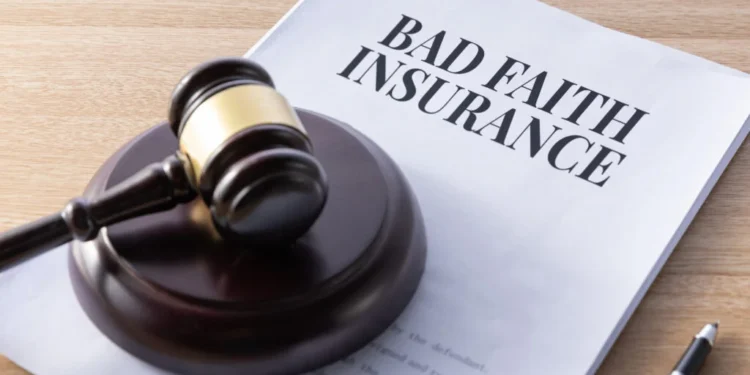Bad Faith Insurance Attorney is supposed to be a safety net—a financial shield that protects you from unexpected events, accidents, or losses. But what happens when your insurance company, instead of supporting you, denies your claim, delays payment, or acts in a way that’s unfair? That’s where a bad faith insurance attorney comes in. These legal professionals specialize in holding insurance companies accountable and ensuring that policyholders receive the coverage they’re entitled to.
In this article, we’ll dive deep into what Bad Faith Insurance Attorney is, how an attorney can help, and why it’s essential to have expert legal guidance when dealing with insurance disputes.
What Is Bad Faith Insurance?
At its core, Bad Faith Insurance Attorney refers to situations where an insurance company fails to act fairly toward its policyholder. Essentially, the insurer is expected to operate in good faith, meaning they should process claims honestly, promptly, and according to the terms of the insurance policy. When they fail to do this, policyholders may have grounds for a bad faith claim.
Insurance companies might act in Bad Faith Insurance Attorney in several ways. Some common examples include:
- Unreasonable denial of a valid claim – The insurer refuses to pay out despite clear evidence that the claim is legitimate.
- Excessive delays in processing claims – Delaying the payment or investigation of a claim for no justifiable reason.
- Lowball settlement offers – Offering significantly less than the actual value of the claim, hoping the policyholder will accept out of desperation.
While it may be tempting to assume the insurance company is just being difficult, Bad Faith Insurance Attorney actions are legally recognized breaches of duty, and victims have the right to seek legal remedies.
Why You Might Need a Bad Faith Insurance Attorney

Dealing with an insurance company that’s acting in Bad Faith Insurance Attorney can be overwhelming. Policies are often written in complex legal language, and insurance companies have teams of adjusters and lawyers whose sole job is to minimize payouts. That’s why a bad faith insurance attorney is invaluable—they act as your advocate and level the playing field.
Here’s why hiring an attorney makes a difference:
- Expertise in Insurance Law – Bad Faith Insurance Attorney claims involve complex legal principles and procedural rules. Attorneys know how to interpret policy language, identify violations, and build strong cases.
- Negotiation Power – Insurance companies are more likely to take a claim seriously when an attorney is involved. An experienced lawyer can negotiate settlements that fairly reflect your losses.
- Litigation Experience – If negotiations fail, a bad faith insurance attorney can take the case to court. They are skilled in presenting evidence, questioning witnesses, and making persuasive legal arguments.
Simply put, a Bad Faith Insurance Attorney ensures you don’t settle for less than what you deserve and helps you hold insurance companies accountable for their misconduct.
Signs Your Insurance Company Might Be Acting in Bad Faith
Insurance companies are legally obligated to treat policyholders fairly, but many tactics can indicate Bad Faith Insurance Attorney behavior. Recognizing these early can help you protect your rights before it’s too late.
Common red flags include:
- Unexplained delays – If your claim is taking far longer than the normal processing time, it may indicate the company is intentionally dragging its feet.
- Inadequate explanations for denial – Insurance companies must provide a valid reason when denying a claim. Vague or contradictory explanations can be a warning sign.
- Pressure to settle quickly – Some insurers offer a low settlement immediately, hoping you’ll accept it without reviewing the true value of your claim.
- Failure to investigate – A Bad Faith Insurance Attorney may neglect to properly investigate your claim, missing crucial evidence that supports your case.
If you notice these signs, consulting a bad faith insurance attorney early can prevent further mishandling and improve your chances of a favorable outcome.
How a Bad Faith Insurance Attorney Builds Your Case
Building a Bad Faith Insurance Attorney claim requires a careful combination of legal expertise, investigative skills, and negotiation strategy. Here’s how a qualified attorney typically approaches these cases:
- Reviewing Your Policy – The attorney begins by examining your insurance contract in detail. They look for clauses, obligations, and exclusions that may support your claim.
- Gathering Evidence – This involves collecting documentation such as claim forms, communications with the insurance company, expert reports, and other relevant records. Evidence is crucial for proving that the insurer acted unfairly or violated their duty.
- Documenting Damages – Attorneys calculate the full extent of your financial losses, including any indirect damages such as stress, lost income, or additional expenses caused by the insurer’s Bad Faith Insurance Attorney behavior.
- Negotiating or Litigating – Depending on the situation, the attorney may negotiate a fair settlement or file a lawsuit. In court, the lawyer presents evidence and argues that the insurer breached its duty of good faith.
The process can be complex, but having an attorney manage it ensures that nothing is overlooked and increases your chances of obtaining maximum compensation.
Common Types of Bad Faith Insurance Cases
Bad Faith Insurance Attorney can occur across a variety of insurance types. Some of the most common areas include:
1. Health Insurance
Insurers may deny coverage for medical procedures, treatments, or prescriptions even when they’re clearly within the policy’s terms. This can be particularly harmful, as delays in medical treatment can impact your health and well-being.
2. Auto Insurance
Bad Faith Insurance Attorney in auto insurance often arises after an accident. Insurers may refuse to pay for vehicle damage, personal injuries, or medical bills, leaving policyholders stuck with significant expenses.
3. Homeowners Insurance
Homeowners may face Bad Faith Insurance Attorney when insurers deny claims for fire, water, or storm damage. Sometimes insurers will undervalue the property damage or delay inspections, making it difficult to repair or replace damaged property.
4. Life Insurance
Life insurance claims can also involve Bad Faith Insurance Attorney, particularly when insurers attempt to deny death benefits to beneficiaries citing minor technicalities or outdated policy language.
Each type of claim requires nuanced legal knowledge, which is why a specialized Bad Faith Insurance Attorney is essential.
Legal Remedies for Bad Faith Insurance
When an insurance company acts in Bad Faith Insurance Attorney, policyholders have several legal remedies available:
- Compensatory Damages – This covers the actual financial losses incurred due to the insurer’s Bad Faith Insurance Attorney, such as unpaid claims, repair costs, or medical bills.
- Punitive Damages – In cases of egregious misconduct, courts may award punitive damages to punish the insurer and deter similar behavior in the future.
- Attorney’s Fees – Many states allow policyholders to recover legal fees from insurers if they prevail in a bad faith claim.
A skilled bad faith insurance attorney knows how to navigate state-specific laws and maximize your recovery, which is often more than just the initial claim payout.
How to Choose the Right Bad Faith Insurance Attorney
Not all attorneys are created equal, especially in the specialized field of insurance law. Here are some key factors to consider when choosing legal representation:
- Experience – Look for an attorney who has a proven track record with bad faith cases similar to yours. Experience ensures they know the tactics insurers use and how to counter them effectively.
- Reputation – Client reviews, peer endorsements, and professional awards can give insight into an attorney’s credibility and reliability.
- Communication – Your attorney should be approachable, responsive, and able to explain complex legal concepts in plain language.
- Fee Structure – Many bad faith attorneys work on a contingency basis, meaning they only get paid if you win. Understanding the fee arrangement upfront avoids surprises later.
Choosing the right attorney can significantly affect the outcome of your case, so it’s worth investing the time to research and consult with potential candidates.
Tips for Working with Your Bad Faith Insurance Attorney
To make the most of your legal representation, there are a few tips to keep in mind:
- Be Transparent – Share all documents, emails, and communications with your attorney, even if they seem irrelevant. Small details can make a big difference.
- Stay Organized – Keep a timeline of events, payments, and correspondence with the insurance company. This helps your attorney build a strong narrative.
- Ask Questions – Don’t hesitate to ask your attorney to clarify processes, legal terms, or strategies. Understanding what’s happening reduces stress and builds confidence.
A collaborative approach ensures your attorney can advocate effectively on your behalf.
The Bottom Line: Protecting Yourself Against Insurance Bad Faith
Insurance is meant to protect you in times of need, not create additional stress. When insurers act in Bad Faith Insurance Attorney, it’s not just frustrating—it can have significant financial and emotional consequences. A bad faith insurance attorney is your advocate, negotiator, and legal shield against unfair practices.
From identifying red flags and reviewing complex policies to negotiating settlements and litigating in court, these attorneys bring the expertise and strategy needed to hold insurance companies accountable. If you suspect your insurer is acting in bad faith, seeking legal counsel early can make all the difference in securing the coverage and compensation you deserve.
Remember, insurance companies count on policyholders being intimidated or overwhelmed. With the right attorney by your side, you can level the playing field, enforce your rights, and ensure your claim is treated fairly.
You May Also Read
Chicago Bears vs Detroit Lions Match Player Stats


















































































